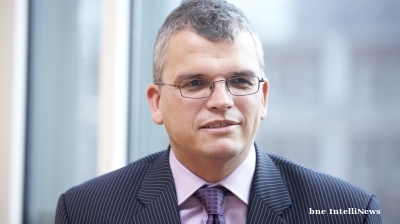Iran’s business leaders now face a critical juncture. This moment of ceasefire gives us the space to pause, to evaluate, adjust course and prepare for multiple eventualities. It presents both opportunity and uncertainty – a chance for Iran to re-engage with the global economy, yet also the risk of renewed instability. Our role in these moments is clear: we must build, adapt and lead.
The landscape before us is complex and demanding. The path ahead may open Iran's doors to international trade and investment, creating opportunities we have not seen in years. Foreign partnerships, previously constrained by sanctions and geopolitical tensions, could resurface. New markets may become accessible, supply chains could stabilise and the flow of capital might resume its natural course. Yet we must also acknowledge the alternative reality – one where internal unrest and external pressures test our resolve and resources. Political volatility could return without warning. Economic sanctions might tighten rather than ease. The very foundations upon which we plan today could shift beneath our feet tomorrow.
In either scenario, we cannot afford to pause and must continue to create value. The luxury of waiting for certainty is one we do not possess. Every day of hesitation is a day lost, every postponed decision a missed opportunity to strengthen our position. The companies that emerge strongest from periods of uncertainty are those that remained active, adaptive and forward-thinking when others retreated into defensive positions.
Our responsibility extends beyond profits. We are stewards of something far greater than balance sheets and quarterly returns. We must safeguard livelihoods, understanding that behind every employment figure stands a family depending on our decisions. We must maintain essential services for our communities, recognising that our operations often form the backbone of local economies. Most critically, we must preserve hope – not just for our employees and stakeholders, but for the nation itself.
History reminds us of our capacity for resilience. During the Iran-Iraq war, when conventional wisdom suggested economic collapse was inevitable, industries emerged not merely intact but stronger. They preserved the nation's economic foundations through eight years of conflict, proving that business acumen combined with determination could overcome seemingly insurmountable obstacles. These enterprises understood that survival required innovation, that constraints bred creativity and that adversity revealed hidden strengths.
Today, like those years, and like Lebanon amid its own conflicts, we must learn to operate through crisis. We must develop the ability to function effectively regardless of external circumstances. This means building robust systems that can withstand shocks, cultivating relationships that transcend political boundaries, and maintaining operational excellence even when resources are scarce.
Four priorities demand our unwavering focus: job creation, preserving productivity, ensuring business stability and avoiding layoffs. These are not merely business objectives – they are our contribution to national resilience. When we create jobs, we provide dignity and purpose. When we preserve productivity, we maintain our competitive edge. When we ensure stability, we offer predictability in unpredictable times. When we avoid layoffs, we preserve the human capital that will drive our future growth.
Job creation in uncertain times requires bold thinking and creative approaches. It means identifying opportunities others cannot see, investing in skills development when training budgets face scrutiny, and recognising that hiring during downturns often yields the most capable and committed employees. Companies that expand their workforce strategically during challenging periods position themselves advantageously for recovery.
Preserving productivity demands more than maintaining current output levels – it requires reimagining how work gets done. This means embracing technological solutions that enhance efficiency, streamlining processes that no longer serve their purpose, and empowering employees to contribute beyond their traditional roles. Productivity in crisis is about doing more with less while maintaining quality and morale.
Business stability cannot be achieved through conservative measures alone. True stability comes from diversification – of revenue streams, supply chains, market presence, and operational capabilities. It requires building financial reserves during good times and maintaining strategic flexibility to pivot when circumstances demand change. Stable businesses are those that remain relevant regardless of external conditions.
Avoiding layoffs is perhaps our most crucial responsibility, yet also our most challenging. It requires honest assessment of long-term value creation rather than short-term cost reduction. Companies that preserve their workforce through difficult periods often discover hidden capabilities within their teams and build loyalty that endures long after the crisis passes. To all managing teams: communicate this vision clearly to your staff. Transparency builds trust, and trust enables extraordinary performance during extraordinary times. Your teams need to understand not just what is expected of them, but why their contributions matter beyond immediate business objectives. They need to see how their daily work connects to something larger than themselves.
Empower your teams with high morale, flexibility and purpose. High morale cannot be manufactured through empty motivational speeches – it must be earned through consistent actions that demonstrate genuine care for employee wellbeing. Flexibility means creating systems that can adapt quickly to changing circumstances while maintaining core operational standards. Purpose comes from connecting individual roles to collective mission, helping each team member understand their irreplaceable contribution to organisational success.
The choice before us is clear: we can allow uncertainty to paralyse us, or we can use it as fuel for innovation and growth. We can retreat into survival mode, or we can advance with strategic purpose. We can wait for better times, or we can create them through our actions today. The future will judge us not by the circumstances we faced, but by how we responded to them. Let us ensure that judgement reflects leaders who rose to meet their moment, who chose progress over paralysis, and who proved that true business leadership means building bridges to tomorrow, regardless of today's storms.
Nasser Pashapour Nikoo is the CEO of dnaUnion, a marketing and corporate communications holding company based in Tehran, Iran.
Opinion

COMMENT: Why Beijing will never take Taiwan
Xi Jinping needs to think again before he sends so many young Chinese men and women to their deaths on Taiwan, for if the PLA does one day dare to land, they will be buried here.

COMMENT: Ukraine’s coming financial storm
“A crisis is drawing ever closer. It will break in Ukraine, but it won’t begin on the frontlines, where the country’s battle-weary brigades continue to impose a brutal cost on the Russian invader," writes Timothy Ash of BlueBay Asset Management.

BEYOND THE BOSPORUS: Performance postponed. Hotly anticipated “CHP” trial pushed into October
Every Turk up and down the country has an opinion on what Erdogan is up to.

COMMENT: Europe’s summer of humiliation
This summer started with optimism around trade deals and progress in Ukraine, but quickly unravelled. Trade uncertainty is back, the war drags on with rising casualties, and Europe is now grappling with a raft of political crises.




